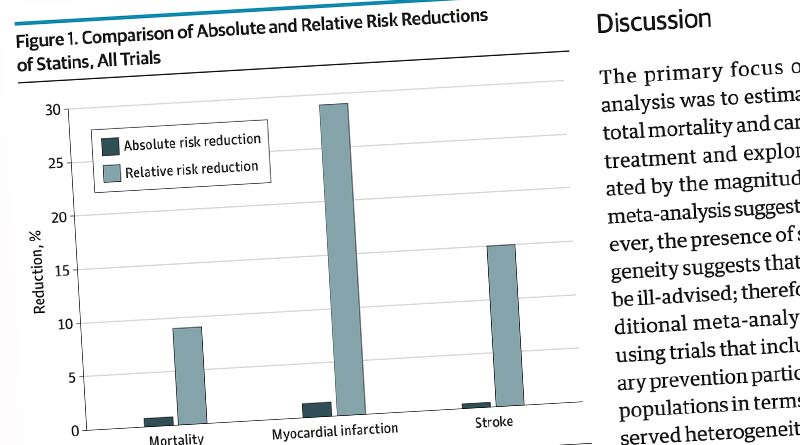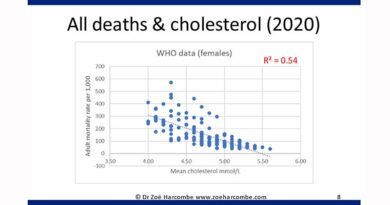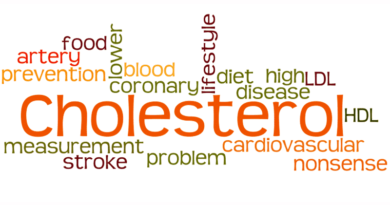A new look at statins, LDL-Cholesterol & CVD
Summary
* Most papers presenting the benefits of statins have been done by the Oxford Cholesterol Treatment Trialists (CTT) team. They tend to present benefits of statins in relative risk terms – with claims of benefits of approximately 20% being typical.
* This week's paper set out to evaluate the absolute risk reduction for relationships between statins, LDL-cholesterol and deaths/disease.
* The authors used the same trials that the CTT use and found potential for bias in a number of areas, not least that all of the included trials were funded, in part or wholly, by the pharmaceutical industry.
* The study examined all-cause mortality, heart attacks and strokes for all trials together and then separately examined trials that included people who had previously had a heart event or not. The relative risk reductions ranged between 9% and 38%, which seems large. The absolute risk reductions ranged between 0.3% and 2.2%, which doesn't seem large.
* The authors conducted a number of tests that led to concerns about the reliability of pooling these trials given their differences and inconsistent definitions of key terms.
* The authors also tried to establish what role reductions in LDL-Cholesterol played in any benefits from statins. They found no consistent impact of reducing LDL-cholesterol.
* Patients are presented with the information that taking a statin (for 4.4 years on average) would reduce their risk of having a heart attack by 29% (relative risk). The same information could be presented as 77 people would need to take statins for approximately 4.4 years on average to prevent 1 heart attack (absolute risk).
* This paper was simple and powerful and should change patient-doctor consultations, but I suspect that it won't.





